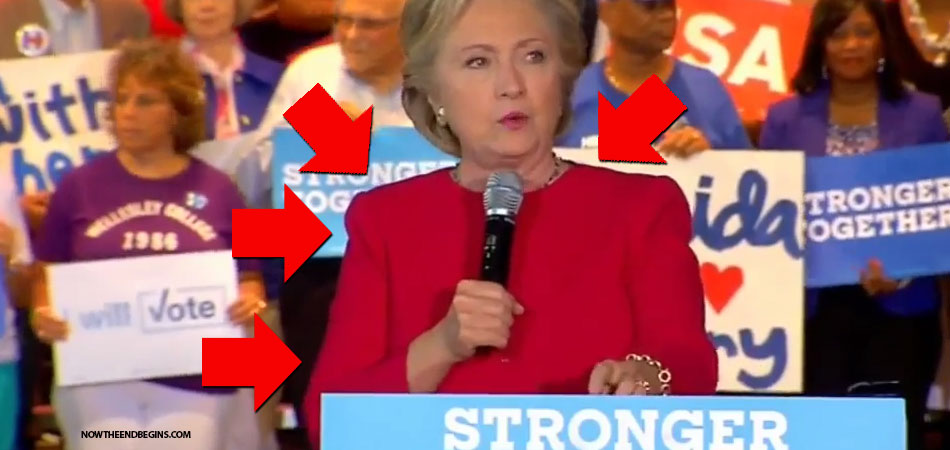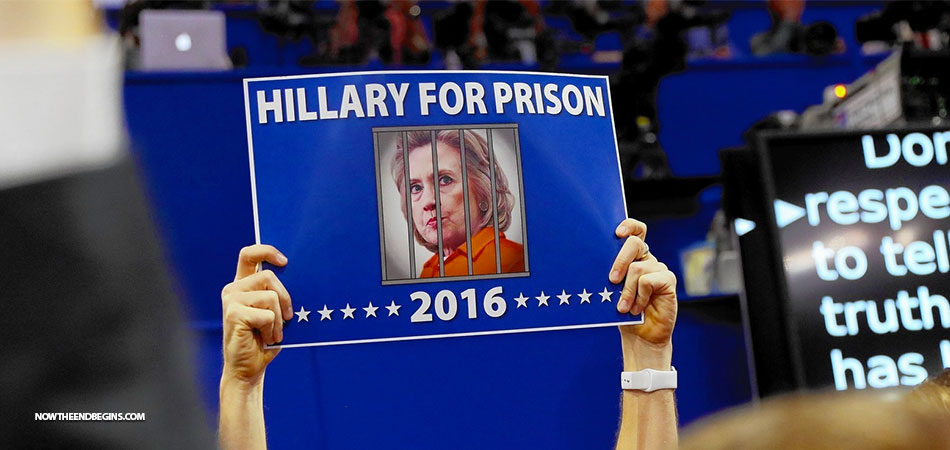Deadly Drugs
First Woman Charged On Controversial Law That Criminalizes Drug Use During Pregnancy
ABC News reports today that a Tennessee woman is the first to be charged under a new state law that specifically makes it a crime to take drugs while pregnant, calling it “assault.”

Mallory Loyola, 26, was arrested this week after both she and her newborn infant tested positive for meth
“Before I formed thee in the belly I knew thee; and before thou camest forth out of the womb I sanctified thee, and I ordained thee a prophet unto the nations.” Jeremiah 1:5 (KJV)
ABC News reports today that a Tennessee woman is the first to be charged under a new state law that specifically makes it a crime to take drugs while pregnant, calling it “assault.” The law, which just went into effect earlier this month, allows a woman to be “prosecuted for assault for the illegal use of a narcotic drug while pregnant” if her infant is harmed or addicted to the drug.

Loyola was released on $2,000 bail and was charged with a misdemeanor according to WATE-TV. The law allows anyone charged to use entering a treatment program before birth and successfully completing it afterwards as a defense.
So, let’s see if I have this right. It’s a crime to do drugs (assuming this is extended to drinking alcohol as well) while you are pregnant because it could harm the baby. But it is not a crime, in fact it is taxpayer funded, to kill your baby in your womb up to mere weeks before it is born? So what is the message being sent here, kill your unborn baby to avoid jail time?
America today has lost any moral bearing it once had, adrift in a sea of liberal confusion and overly-zealous lawmakers. The unborn is a “baby” when it suits their purposes, as in this case, and a “fetus” when they want to give women the “choice” to kill it if they so desire. Well, they cannot have it both ways. How can Partial Birth Abortion be reconciled with this law making drug use a crime while pregnant? It is not possible.
If you don’t know the answer to that question, maybe it’s because your mom did drugs while she was pregnant with you.
Think about it…

Deadly Drugs
World’s Most Hated Hated Chemical Company Monsanto Is About To Disappear Forever In Purchase By Pharma Giant Bayer
The German pharmaceutical company Bayer has been in the process of buying the Monsanto company for more than two years, and the $66 billion deal is finally closing this week.As recognizable as the name “Monsanto” is to its customers, it’s almost better known among its detractors.

The German pharmaceutical company Bayer has been in the process of buying the Monsanto company for more than two years, and the $66 billion deal is finally closing this week.
EDITOR’S NOTE: The Monsanto company is best known for making poisons that kill the environment, kill animals, and kill people like NutraSweet and RoundUp . They have also used Genetically Modified Organisms to manipulate and control the farm crop production in the country. They did all this purely for profit, not caring an iota about the untold tens of thousands of human lives that they have impacted and destroyed. Now aspirin giant Bayer has purchased the company, and what’s the first order of business? Putting the name of Monsanto into the trash, but taking over the Monsanto monopoly on the world’s crop seed, especially that of farmers in America. And don’t forget, Bayer was part of the pharma giant IG Farben in Hitler’s Nazi Germany, and they developed the Zyklon B gas used in the concentration camps, as well as purchasing Jews to use to test experimental new drugs on. All things considered, I guess Bayer buying Monsanto makes pretty good sense. Birds of a feather and all that stuff.
On Monday, Bayer announced in a statement that it had received all the necessary regulatory approvals to buy Monsanto, and that they would retire the 117-year-old name of “almost surely the most vilified company on the planet.”
“Bayer will remain the company name. Monsanto will no longer be a company name. The acquired products will retain their brand names and become part of the Bayer portfolio,” the statement said.
Acquirers don’t typically change the names of the companies they’re buying when it’s as well-recognized to its customers as Monsanto is, but in this case, it may be the best option. Here’s why.
Agent Orange, DDT, GMOs
As recognizable as the name “Monsanto” is to its customers, it’s almost better known among its detractors. Monsanto was established in 1901 as a chemical business, and has found itself at the center of some of the biggest controversies of the 20th and 21st centuries. The chemical Agent Orange, which was weaponized and demonized during the Vietnam era, was produced under the name Monsanto. The company was also among those that produced DDT, a now-banned pesticide. In recent years, the name has become virtually synonymous with Genetically Modified Organisms (GMOs) and the target of much of the protest against them.
Watch as Nazi soldiers put Zyklon B gas pellets from Bayer into the shower system in Hitler’s concentration camps
For all the ire Monsanto gets from its detractors, its loyal customers aren’t always happy either. In 2008 when the company pledged to become carbon-neutral by 2021, some of the company’s customers said it was giving in to the government and activists in acknowledging that climate change is even partly man-made.
But is erasing ‘Monsanto’ enough?
From a PR perspective, getting rid of “Monsanto” will make things much simpler. But it’s possible that Bayer hasn’t gone far enough by putting Monsanto to bed. Although Monsanto will be a thing of the past, some of its brand names, which will become part of the Bayer portfolio, draw almost as much controversy as the parent company. For instance, the pesticide Roundup is probably the best-known pesticide among non-specialist audiences. In 2017, California listed its active ingredient, glyphosate, as a chemical known to cause cancer. Later that year the EU parliament voted in a non-binding resolution to ban the pesticide by 2022, though the chemical was later given a new five-year license. source
Now The End Begins is your front line defense against the rising tide of darkness in the last Days before the Rapture of the Church
- HOW TO DONATE: Click here to view our WayGiver Funding page
When you contribute to this fundraising effort, you are helping us to do what the Lord called us to do. The money you send in goes primarily to the overall daily operations of this site. When people ask for Bibles, we send them out at no charge. When people write in and say how much they would like gospel tracts but cannot afford them, we send them a box at no cost to them for either the tracts or the shipping, no matter where they are in the world. Even all the way to South Africa. We even restarted our weekly radio Bible study on Sunday nights again, thanks to your generous donations. All this is possible because YOU pray for us, YOU support us, and YOU give so we can continue growing.
But whatever you do, don’t do nothing. Time is short and we need your help right now. If every one of the 15,860+ people on our daily mailing list gave $4.50, we would reach our goal immediately. If every one of our 150,000+ followers on Facebook gave $1.00 each, we would reach 300% of our goal. The same goes for our 15,900 followers on Twitter. But sadly, many will not give, so we need the ones who can and who will give to be generous. As generous as possible.
“Looking for that blessed hope, and the glorious appearing of the great God and our Saviour Jesus Christ;” Titus 2:13 (KJB)
“Thank you very much!” – Geoffrey, editor-in-chief, NTEB
- HOW TO DONATE: Click here to view our WayGiver Funding page
Deadly Drugs
SIN CITY: Nevada Set To Become First State To Allow Marijuana Lounges For Stoners To Get High
Nevada could become the first state to allow users of recreational marijuana to light up in clubs and lounges, a state legal body said this week.

Nevada could become the first state to allow users of recreational marijuana to light up in clubs and lounges, a state legal body said this week, opening a new front in what is already a booming pot business.
“Ye are all the children of light, and the children of the day: we are not of the night, nor of darkness. Therefore let us not sleep, as do others; but let us watch and be sober.” 1 Thessalonians 5:5,6 (KJV)
EDITOR’S NOTE: Watching the gradual rush towards legalizing pot has been for me a subject of great amusement. Just like when the lottery first became legal back in the 1970’s, and everyone was all excited about the new source of public school funding which was going to “erase poverty” in the worst of neighborhoods, the fight to legalize pot comes with similar outlandish and completely not true claims. Will pot lounges “boost tourism”? Yep, sure will. It will also boost the crime rate, boost the poverty rate, and boost your car while they’re at it. The Bible commands us to be sober, and you cannot be sober and high at the same time.
The state Legislative Counsel Bureau said Monday that state law does not prohibit city or county governments from operating a lounge or facility in which patrons may use marijuana.
Cities and counties are allowed to adopt their own rules governing those businesses and decide whether they are required to obtain special permits, the bureau said. The ruling means tourists and visitors may soon have a place to consume marijuana in public. Pot smoking is banned under state law in Nevada’s hotels and casinos.
None of the four other states where marijuana is legal for recreational use — Washington, Colorado, Alaska and Oregon — currently allow so-called pot lounges. All four states restrict marijuana use to private residences. The three other states where legislators and regulators are finalizing rules in advance of legalized marijuana — California, Massachusetts and Maine — are not currently considering legal pot lounges.
Legalization advocates say pot lounges are a logical step, especially if states where marijuana is allowed hope to connect their pot industry to tourism.
“Allowing regulated social use areas is a good solution that recognizes cannabis consumers’ rights to congregate just like alcohol drinkers can in bars while also protecting nonconsumers’ rights not to inhale secondhand smoke,” said Tom Angell, the founder of Marijuana Majority, a pro-legalization group. “It should be a no brainer, especially in tourist towns like Las Vegas where visitors don’t have private residences they can go back to to imbibe.”
The Nevada legislator who spearheaded much of the legalization movement, state Sen. Tick Segerblom (D), has said he thinks marijuana will attract new tourists to the state.
“We’re going to really market this thing around the world,” Segerblom told The Hill in a recent interview.
But legalization skeptics say the growing prevalence of marijuana stores, and lounges where those products can be consumed, increase the risk of crime associated with the nascent industry.
“The people of Nevada wanted folks not to go to jail for using marijuana,” said Kevin Sabet, who heads the anti-legalization group Smart Approaches to Marijuana. “I don’t think they envisioned pot clubs in their neighborhood.”
“Data show that areas around marijuana stores have higher crime and issues with second-hand smoke and other nuisances. I can’t imagine pot clubs will be a good thing for the state,” Sabet said.
Cities will still have to pass their own ordinances governing marijuana lounges after the state legislature killed a measure that would have legalized them earlier this year. Gov. Brian Sandoval (R) told the Las Vegas Review-Journal on Tuesday he is no fan of the prospect of lounges.
“I did not support them previously,” Sandoval told the paper. “I don’t support them now.”
Sandoval did not support the ballot measure legalizing marijuana last year, but he has said he will work with the federal Justice Department to allow legal marijuana now that it has passed. Sandoval and other governors of states that have legalized pot have been concerned that the Trump administration may reverse a long-standing Obama administration agreement that deemphasized prosecutions of marijuana-related businesses in their states.
“I don’t know what direction the Justice Department is going to go, but it is going to raise some legal issues,” Sandoval told The Hill in a recent interview. “I want a model system.”
Nevada became the fifth state to allow marijuana use for recreational purposes on July 1, just eight months after state voters approved a ballot measure. California, Maine and Massachusetts, where voters also passed legalization measures, will begin legal pot sales next year. source
Deadly Drugs
New Strain Of Terrifying Street Drug ‘Spice’ Creating Entire Subculture Of Human Zombies Across The Globe
Drug experts are warning of a Spice epidemic spreading from the North-West, driving a wave of crime and casualties that baffle local police.

Dead men and women were walking the streets of central Manchester this week. Some of them, their faces wan and eyes open, but filled with a terrible vacancy, stumble forward with arms out-stretched.
“And in those days shall men seek death, and shall not find it; and shall desire to die, and death shall flee from them.” Revelation 9:6 (KJV)
Imagine people standing stock-still like shop mannequins, seemingly unconscious but upright, or slumped forward, as commuters scurry past with their heads down. There were still more I spotted comatose on pavements or slumped in doorways. One young man in a grey tracksuit lolled on the steps outside McDonald’s, twitching and gibbering to himself.
Outside the Arndale Shopping Centre, I saw another youth passed out on his back, his arms and legs extended into the air as if rigor mortis had set in. These are the victims of Spice, a generic term for various mixtures of herbs and potent chemicals which, until last May, was openly on sale in Britain as a so-called ‘legal high’.
The Walking Dead: New strain of spice turns homeless into zombies
Now, a powerful strain has emerged that produces a terrifying zombie-like effect in those who smoke it. It is estimated that up to 95 per cent of the young homeless in Manchester are using it, many of them hopelessly addicted.
Drug experts are warning of a Spice epidemic that is spreading from the North-West, driving a wave of crime and casualties that the police and emergency services are struggling to cope with.
‘Spice has the physically addictive qualities of heroin and the psychologically addictive qualities of crack,’ says Robert Ralphs, senior lecturer in criminology at the University of Manchester and an expert on the drug.
The crisis came to national attention this week following the publication of video footage, shot by an office worker in Manchester, showing people under its influence.
Photographs published in the Mail, taken by a bus driver who was alarmed by what he was seeing along his route each day in Wrexham in North Wales, further underlined this developing threat.
It has led to calls for Spice to be made a Class A drug.
I was, I admit, highly sceptical of the claims being made for Spice. I’m from Edinburgh, the heroin capital of Europe in the Eighties and setting for the film Trainspotting. I haven’t led a sheltered life and I believed I knew the worst that drugs could do.
Drug induced Zombie walk, Charlton St. Worcester, Mass. USA
It seemed highly unlikely a drug first produced as a supposedly ‘safe’ synthetic cannabis alternative — something available as a legal high for years to British teenagers — could have morphed into a substance wreaking more destruction than heroin or crack cocaine, as some of the reports suggested.
But what I have discovered is that there is nothing exaggerated about the effects of this highly addictive drug, as was evident within minutes of my arrival at Manchester Piccadilly Station this week. Around the city square and shopping area in Piccadilly Gardens, the ‘zombies’ with their sunken cheeks and ghostly white skin covered in sores are highly visible. I watched users on a bench packing their pipes with Spice. Within seconds of smoking the drug, they were catatonic.
Carl, 50, was mixing his fix — an odourless, crumbly, green mix — with tobacco to roll in a joint when I approached him, just 20 yards from a mobile police office. He became addicted some years ago after buying the drug at a shop selling legal highs.
‘It’s awful to come off it — you rattle,’ he told me. ‘I’ve tried to get off it, but it’s harder than gear [heroin].’ He inhaled on the joint. It looked like a cigarette and was odourless — one reason users feel no need to hide their habit.
‘I smoke this because it’s better for me than injecting with needles — better for my health. I’m starting to feel woozy. I can feel all my problems going away.’ The conversation was swiftly terminated: Carl decided he wanted to be alone. He stood up and moved down the street. I watched him go. Five minutes later, he had managed barely 100 yards.
Carl is a typical victim in that the roots of this problem go back to the manufacture of legal highs in the late Nineties. These were chemical compounds sold in attractive packaging and made in industrial quantities in China and India to beat UK drugs laws.
They were not covered by legislation because the key chemicals they contained were unknown. Under names such as Black Mamba, K2 and Spice, they were sold as ‘harmless’ synthetic cannabis substitutes in legal high shops across Britain.
After a series of deaths were linked to them, the government acted — belatedly in the view of many who had been warning of the dangers — to shut down these shops last May, when a new law was introduced banning all psychoactive substances said to impact mental health.
However, it was too late for those already addicted and so the demand for Spice remained. Dealers of traditional hard drugs such as ‘white’ and ‘brown’ (slang for cocaine and heroin) started selling Spice, which is far cheaper and less risky to make locally than to import hard drugs.
The so-called Spice barons buy plant materials in bulk on the internet and spray them with synthetic chemicals which have potent psychoactive properties. Some dealers mix whole batches in their baths.
Tests on a Spice sample obtained in Manchester this week indicated the leaves had been sprayed with 5F-ADB, a synthetic chemical originally developed to mimic cannabis, but which is far more ‘efficient’.
It has been linked to a number of deaths in the UK and abroad. According to some experts, one Spice joint is akin to smoking up to 100 cannabis joints.
No one can explain why the drug has taken hold so quickly or why in Manchester particularly. But price is a factor.
So much is being produced that it’s half the price it was when sold as a ‘legal high’. At £5 a fix — a small plastic bag of Spice bearing an image of Bob Marley — will produce three joints and leave the user comatose for ten hours. source
-
George Soros9 years ago
Proof Of George Soros Nazi Past Finally Comes To Light With Discovery Of Forgotten Interview
-
Election 20169 years ago
DEAD POOL DIVA: Huma Abedin Kept Those Hillary Emails That The FBI Found In A Folder Marked ‘Life Insurance’
-
Election 20169 years ago
Crooked Hillary Campaign Used A Green Screen At Today’s Low Turnout Rally In Coconut Creek FL
-
George Soros9 years ago
SORE LOSER: George Soros Declares War On America As Violent MoveOn.Org Protests Fill The Streets
-
Donald Trump9 years ago
Donald Trump Will Be 70 Years, 7 Months And 7 Days Old On First Full Day In Office As President
-
Headline News9 years ago
If Hillary Is Not Guilty, Then Why Are Her Supporters Asking Obama To Pardon Her? Hmm…
-
Election 20169 years ago
WikiLeaks Shows George Soros Controlling Vote With 16 States Using SmartMatic Voting Machines
-
End Times9 years ago
False Teacher Beth Moore Endorses The Late Term Partial-Birth Abortion Candidate Crooked Hillary

















































































